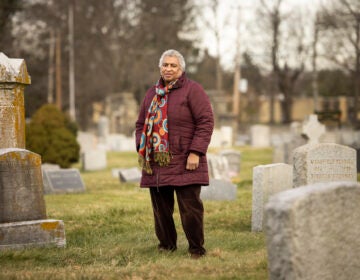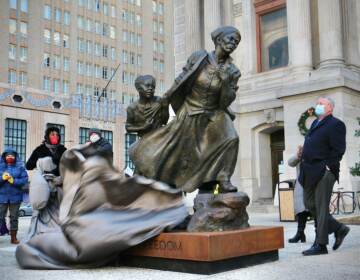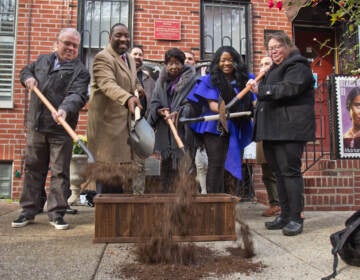Marian Anderson statue coming to Academy of Music, but project needs donations
Properly honoring South Philadelphia’s own Marian Anderson, the first Black singer to perform at the White House in 1936, will require close to $1.4 million.
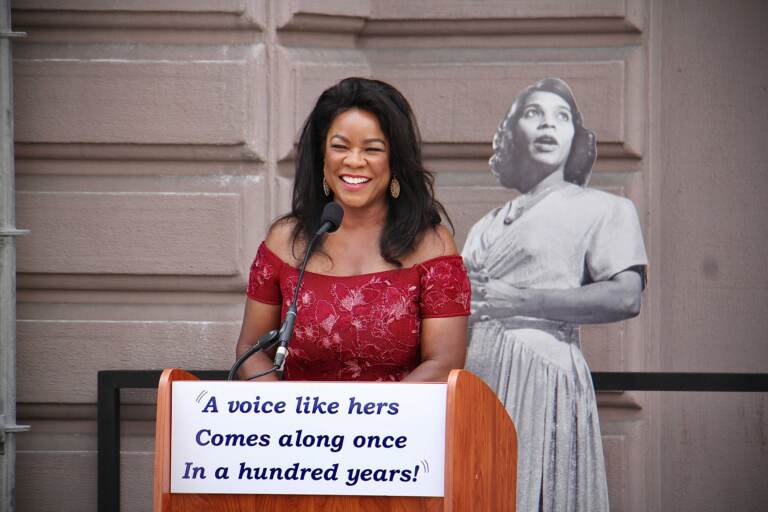
World-renowned mezzo-soprano Denyce Graves speaks at a ceremony to announce that a statue of Marian Anderson will be erected in front of the Academy of Music on South Broad Street. (Emma Lee/WHYY)
Properly honoring South Philadelphia’s own Marian Anderson, the first Black singer to perform at the White House in 1936, will require close to $1.4 million, according to the task force raising the money.
On Thursday, Mayor Jim Kenney and others unveiled the location where a statue of Anderson will be installed: on the steps of the Academy of Music, the oldest opera house in the country, off of Locust and Broad streets.
“For me, it’s not only just important for African Americans to see historic figures that contribute to our history; it’s important for all of us to see those figures, because my children and my grandchildren one day and their children will need to know who these people were,” said Kenney.
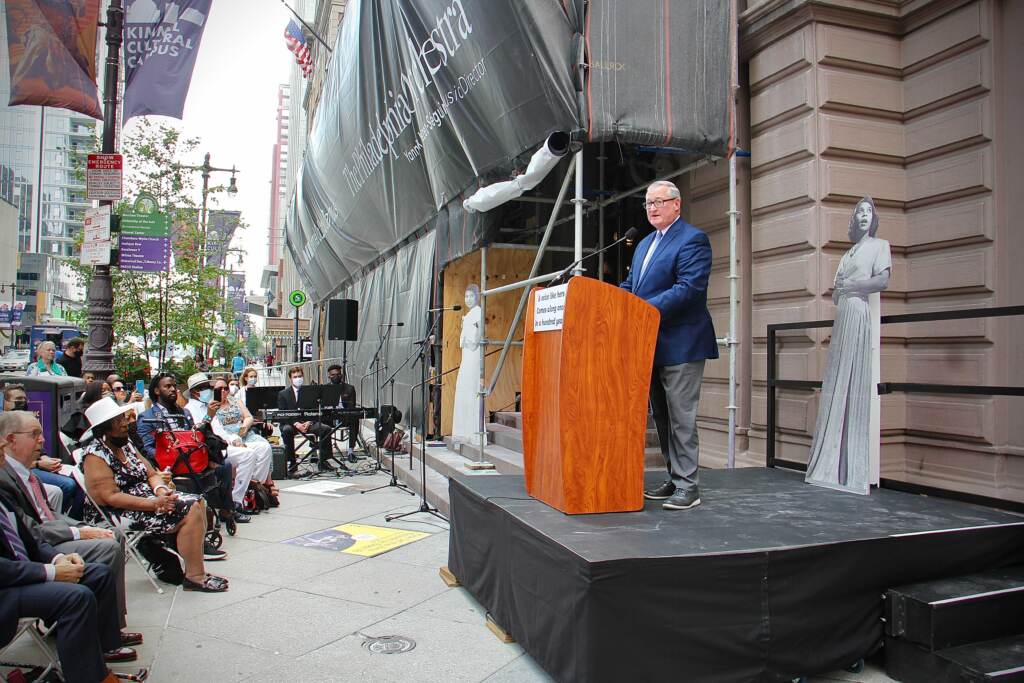
The Marian Anderson Memorial Fund task force reports it has raised $300,000 already, and is asking for the public’s support to reach its $1.4 million goal to pay for the statue, as well as a potential cultural heritage site that would run through South Philly.
“These plans will go unfulfilled if fundraising stalls and does not achieve the goals that are set forth,” Denyce Graves, the famed mezzo-soprano and past recipient of the Marian Anderson Award.
Anderson broke barriers throughout her entire career, in spite of the poor treatment she received in her own country. She was denied admission to the Philadelphia Music Academy because of her race in 1921 and the Daughters of the American Revolution didn’t allow Anderson to sing at Constitution Hall. Anderson, however, sang at the Lincoln Memorial in Washington, D.C. instead. She was the first Black person to become a member of the New York Metropolitan Opera as well.
Now, her statue could make history as the first monument to a Black woman in Philadelphia.
Graves said that while Anderson, who died in 1993, is a well-known figure in the world of classical music, there’s still so much the general public can learn about the contralto.
“Please don’t think for a moment that this honor for Mary Anderson is a local consideration,” said Graves. “It is not. It is not just a Philadelphia story. Miss Anderson impacts American history, the classical vocal arts, and Philadelphia for sure. But this is a story of the United States of America and the world.”
The project now moves to the planning-and-design phase. The city is seeking input from local institutions, including the Pennsylvania Academy of Fine Arts, Moore College of Art and Design, and neighborhood groups.
The final design and artists are slated to be announced February 27, 2022, Anderson’s 125th birthday.

Get daily updates from WHYY News!
WHYY is your source for fact-based, in-depth journalism and information. As a nonprofit organization, we rely on financial support from readers like you. Please give today.



